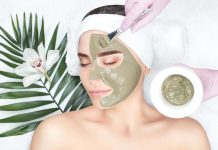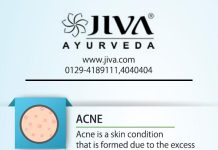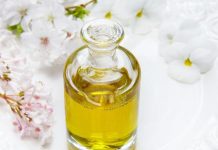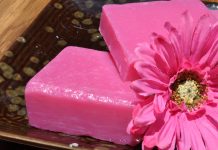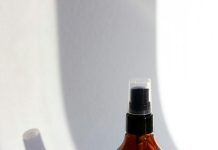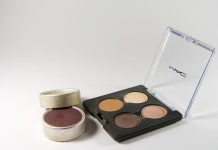In the ever-evolving world of skincare, a quiet revolution is brewing. Shelves once dominated by chemical-based formulas now share space with an array of natural alternatives, each promising a return to purity and simplicity. But as consumers increasingly gravitate towards ingredients sourced from nature, a critical question emerges: should natural skincare products replace their chemical counterparts? This debate is not merely a trend but a reflection of deeper concerns about health, efficacy, and environmental impact. Join us as we explore both sides of the spectrum, delving into the science, benefits, and potential drawbacks, to uncover what truly lies beneath the surface of this skincare conundrum.
Exploring the Essence of Natural Skincare

The allure of nature’s bounty in skincare is undeniable. Natural skincare products boast a rich tapestry of ingredients derived from plants, minerals, and other organic sources. These ingredients are often lauded for their gentle, nourishing properties that work harmoniously with the skin’s natural processes. Advocates argue that they are free from harsh chemicals and synthetic additives, which can be abrasive or cause irritation for some skin types. Here are some potential benefits:
- Gentle on the skin: Often suitable for sensitive skin types.
- Eco-friendly: Typically have a smaller environmental footprint.
- Nutrient-rich: Packed with vitamins, antioxidants, and essential oils.
However, it’s essential to consider the efficacy and shelf life of these products compared to their chemical-based counterparts. While synthetic formulas often contain preservatives and lab-engineered ingredients designed for targeted results, they might lack the holistic appeal of their natural counterparts. Ultimately, the choice between natural and chemical-based skincare hinges on individual skin needs, personal values, and desired outcomes.
Chemical-Based Formulas: Myths and Realities
When it comes to skincare, the term “chemical” often evokes images of harsh, synthetic substances. However, it’s essential to distinguish between the myths and realities surrounding chemical-based formulas. Contrary to popular belief, not all chemicals are harmful. In fact, many are crucial for the effectiveness and stability of skincare products. Chemical-based formulas can include naturally derived ingredients that are scientifically processed to enhance their performance and safety. For instance, salicylic acid, a staple in acne treatment, is derived from willow bark but processed to maximize its benefits.
It’s a common misconception that “natural” automatically means safer or more effective. Consider these points:
- Preservation: Chemical preservatives are often necessary to prevent bacterial growth and ensure product longevity.
- Consistency: Chemical formulations provide consistent results, which can be challenging to achieve with natural products due to variability in raw materials.
- Innovation: Advances in chemistry allow for the development of targeted treatments that can address specific skin concerns more effectively than some natural alternatives.
Understanding the science behind these formulas can help dispel myths and appreciate the role they play in modern skincare.
Balancing Nature and Science in Skincare

In the quest for the perfect skincare regimen, the debate between natural and chemical-based products is ever-evolving. Natural skincare products often appeal to those seeking minimal processing and ingredients sourced directly from nature. These products usually contain plant extracts, essential oils, and other naturally derived components. They promise to nourish the skin without the harsh effects some synthetic ingredients may cause. However, it’s crucial to remember that “natural” doesn’t always equate to “better.” Natural ingredients can still cause allergies or irritations in some individuals.
On the other hand, chemical-based formulas are formulated with specific active ingredients that target particular skin concerns such as acne, aging, or hyperpigmentation. These products are often backed by scientific research, providing a predictable and measurable outcome. Consider the following when choosing the right products for your skin:
- Effectiveness: Are the active ingredients in the product proven to address your specific skin concerns?
- Skin Type Compatibility: Does the product suit your skin type, be it oily, dry, or sensitive?
- Ingredient Safety: Are the ingredients in the product safe and non-irritating for your skin?
- Personal Preference: Do you prefer natural scents and textures, or are you comfortable with synthetic formulations?
Tailored Recommendations for Your Skin Journey

Finding the right skincare routine can feel like a personal journey, and understanding your skin’s unique needs is crucial. Whether you’re drawn to natural ingredients or prefer the reliability of chemical-based formulas, it’s essential to tailor your approach. Consider the following factors:
- Skin Type: Different ingredients work better for different skin types. For example, oily skin might benefit from salicylic acid found in many chemical formulas, while dry skin might thrive with natural oils like jojoba or almond.
- Specific Concerns: Addressing issues such as acne, aging, or sensitivity requires a nuanced approach. Natural products often boast gentle, soothing properties, while chemical formulas might offer targeted, fast-acting solutions.
- Personal Values: Consider what aligns with your lifestyle and values. If sustainability and eco-friendliness are priorities, natural products may resonate more.
Ultimately, blending both worlds can provide a balanced skincare routine. Opt for a hybrid approach, combining natural moisturizers with science-backed serums to achieve optimal results.

